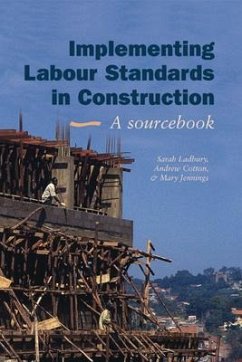Globally, the construction sector is one of the largest employers of temporary workers (after agriculture); the development of infrastructure can be a major contributor to poverty reduction and labour rights. Through the International Labour Organisation (ILO) there exist agreed international conventions on labour standards which cover employment conditions and rights. The underlying problem is not a lack of labour law, rather it is the lack of effective mechanisms to ensure that labour laws are applied and monitored. This sourcebook provides guidance on the collaborative process and contractual issues involved in implementing labour standards. It is based on experience gained from implementing labour standards in infrastructure construction projects in Ghana, India and Zambia. Three different contexts for construction are considered; formal or conventional contracting; community contracting; and self-help schemes using unpaid labour. Part 1 of the sourcebook provides the introduction and context to the development and use of labour standards with reference to construction. Part 2 comprises a framework and detailed Action Points. This is the 'what to do' and 'how to do it' section, covering the process it is necessary to go through to implement labour standards in construction programmes. Part 3 presents an analysis of contract clauses that have been used in relation to labour standards and suggests appropriate clauses to support the implementation of different labour standards. It includes guidance on developing specifications.
Hinweis: Dieser Artikel kann nur an eine deutsche Lieferadresse ausgeliefert werden.
Hinweis: Dieser Artikel kann nur an eine deutsche Lieferadresse ausgeliefert werden.








